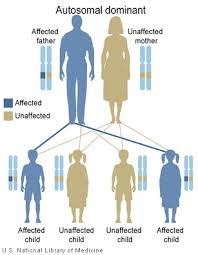BENTA disease
Editor-In-Chief: Prab R Tumpati, MD
Obesity, Sleep & Internal medicine
Founder, WikiMD Wellnesspedia &
W8MD medical weight loss NYC and sleep center NYC
| BENTA disease | |
|---|---|

| |
| Synonyms | B cell expansion with NF-κB and T cell anergy |
| Pronounce | N/A |
| Specialty | Immunology |
| Symptoms | Lymphadenopathy, splenomegaly, recurrent infections |
| Complications | N/A |
| Onset | Infancy |
| Duration | Chronic |
| Types | N/A |
| Causes | Mutations in the CARD11 gene |
| Risks | Family history of the disease |
| Diagnosis | Genetic testing, clinical evaluation |
| Differential diagnosis | Autoimmune lymphoproliferative syndrome, X-linked lymphoproliferative disease |
| Prevention | N/A |
| Treatment | Immunoglobulin therapy, antibiotics for infections |
| Medication | N/A |
| Prognosis | Variable, depending on severity and management |
| Frequency | Extremely rare |
| Deaths | N/A |
BENTA disease is a rare genetic disorder affecting the immune system. The acronym BENTA stands for "B cell expansion with NF-κB and T cell anergy." It is characterized by a germline heterozygous gain-of-function mutation in the CARD11 gene (OMIM entry #607210). This disorder manifests as polyclonal B cell lymphocytosis beginning in infancy, splenomegaly, lymphadenopathy, mild immunodeficiency, and an increased risk of lymphoma.
Causes[edit | edit source]
BENTA disease is caused by gain-of-function mutations in the CARD11 gene. These mutations lead to an increase in NF-κB signaling, which is crucial for immune cell activation and survival. The mutations are heterozygous, meaning only one of the two copies of the gene in each cell is altered.
Characteristics[edit | edit source]
The primary characteristics of BENTA disease include:
- Polyclonal B cell lymphocytosis with onset in infancy
- Splenomegaly
- Lymphadenopathy
- Mild immunodeficiency
- Increased risk of lymphoma
Patients may exhibit symptoms related to the enlargement of the spleen and lymph nodes, as well as recurrent infections due to immunodeficiency.
History[edit | edit source]
BENTA disease was first characterized in 2012 by investigators Andrew L. Snow and Michael J. Lenardo at the National Institute of Allergy and Infectious Disease, part of the U.S. National Institutes of Health. Their groundbreaking work identified the underlying genetic mutations responsible for the disorder and its primary effects on the immune system.
Current Research[edit | edit source]
Dr. Andrew L. Snow, now at the Uniformed Services University of the Health Sciences, continues to study BENTA disease. Current research efforts are focused on understanding the precise mechanisms by which CARD11 mutations lead to the disease's characteristic immune abnormalities and exploring potential therapeutic strategies to manage or cure it.
External Links[edit | edit source]
- OMIM Entry #607210
- National Institute of Allergy and Infectious Disease
- Uniformed Services University of the Health Sciences
References[edit | edit source]
Search WikiMD
Ad.Tired of being Overweight? Try W8MD's physician weight loss program.
Semaglutide (Ozempic / Wegovy and Tirzepatide (Mounjaro / Zepbound) available.
Advertise on WikiMD
|
WikiMD's Wellness Encyclopedia |
| Let Food Be Thy Medicine Medicine Thy Food - Hippocrates |
Translate this page: - East Asian
中文,
日本,
한국어,
South Asian
हिन्दी,
தமிழ்,
తెలుగు,
Urdu,
ಕನ್ನಡ,
Southeast Asian
Indonesian,
Vietnamese,
Thai,
မြန်မာဘာသာ,
বাংলা
European
español,
Deutsch,
français,
Greek,
português do Brasil,
polski,
română,
русский,
Nederlands,
norsk,
svenska,
suomi,
Italian
Middle Eastern & African
عربى,
Turkish,
Persian,
Hebrew,
Afrikaans,
isiZulu,
Kiswahili,
Other
Bulgarian,
Hungarian,
Czech,
Swedish,
മലയാളം,
मराठी,
ਪੰਜਾਬੀ,
ગુજરાતી,
Portuguese,
Ukrainian
Medical Disclaimer: WikiMD is not a substitute for professional medical advice. The information on WikiMD is provided as an information resource only, may be incorrect, outdated or misleading, and is not to be used or relied on for any diagnostic or treatment purposes. Please consult your health care provider before making any healthcare decisions or for guidance about a specific medical condition. WikiMD expressly disclaims responsibility, and shall have no liability, for any damages, loss, injury, or liability whatsoever suffered as a result of your reliance on the information contained in this site. By visiting this site you agree to the foregoing terms and conditions, which may from time to time be changed or supplemented by WikiMD. If you do not agree to the foregoing terms and conditions, you should not enter or use this site. See full disclaimer.
Credits:Most images are courtesy of Wikimedia commons, and templates, categories Wikipedia, licensed under CC BY SA or similar.
Contributors: Prab R. Tumpati, MD


